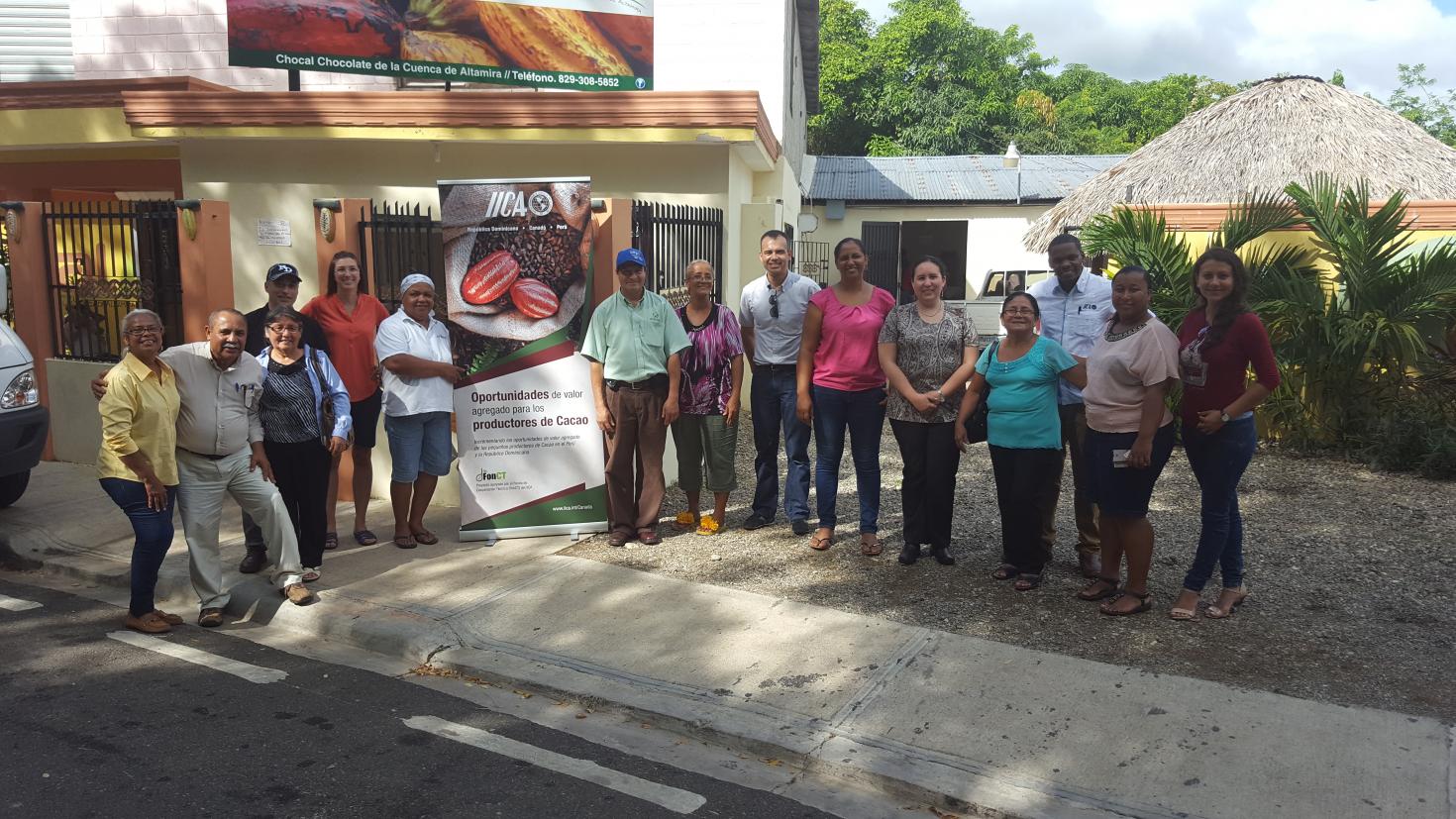The project’s objective was to promote opportunities to generate additional income for families in the cocoa growing communities of Latin America and the Caribbean (LAC) by enhancing the value of cocoa products through the value chain, expanding commercial opportunities and by institutional strengthening.

Small cocoa producers have an opportunity to increase the value of their products and generate additional revenue by processing, as well as by incorporating and highlighting features that are valued by the final consumer, particularly in importing countries. To do this, it is necessary to move from the sale of the raw cocoa beans to transformed products such as differentiated cocoa products with recognized certification marks or chocolate.
Buyers of specialized cocoa products are increasingly seeking processed products made from native beans and grown under certifications such as fair trade, organic or sustainable production systems, and under good agricultural and manufacturing practices. Compliance with sanitary and food safety requirements as well as the aforementioned certifications are necessary to access and maintain markets.
Historically, the participation of women in the cultivation and processing of cocoa has not been duly recognized and supported. Women cacao producers in Peru requested IICA’s assistance in identifying suitable training to enable them to add value to their products and improve the income base for their families.
IICA carried out a project in 2016-2017 aimed at expanding opportunities for cocoa producers to enable them to increase their income through value added processing. A model of value chain development and engagement of rural women in the Dominican Republic was used as a case study. The case was captured and assessed for use in the development of a generic business model, a template shared for posible adoption by other regions.
The business model provides a guide for the successful operation of a cocoa processing business, identifying institutional structures, marketing approaches, revenue sources, customer base, products, processing steps, equipment, certifications, and financing options. In addition to this model, a study of the Canadian market was developed to provide guidance for organizations wishing to export their products.
In order to validate the business model, support from IICA and other partners was provided for a cooperative in Peru (Oro Verde) to develop a customized business plan for their operations. This step was considered a pilot. The finalized business plan provided the cooperative with a path forward, a means to access financing and attract new trade prospects for higher valued products. Some steps towards implementation of the business plan were undertaken. These included the development of an implementation plan, the development of an investment plan, the matching of the investment needs with investors via a virtual financial fair, and training for the cooperative members to build capacity towards full implementation.
To expand the reach of the intervention, several communications products were developed.
Efforts were also undertaken to explore opportunities for replication of the intervention, for adoption of the business model by other cooperatives in LAC, and to identify and attract other funding agencies for future work in this area.
Some of the Project Outputs:
https://drive.google.com/drive/folders/1GMTVC7ssl8uLtaWG3pBnSpR5wq1KFiso?usp=sharing
For more information contact:
Audia Barnett
audia.barnett@iica.int











